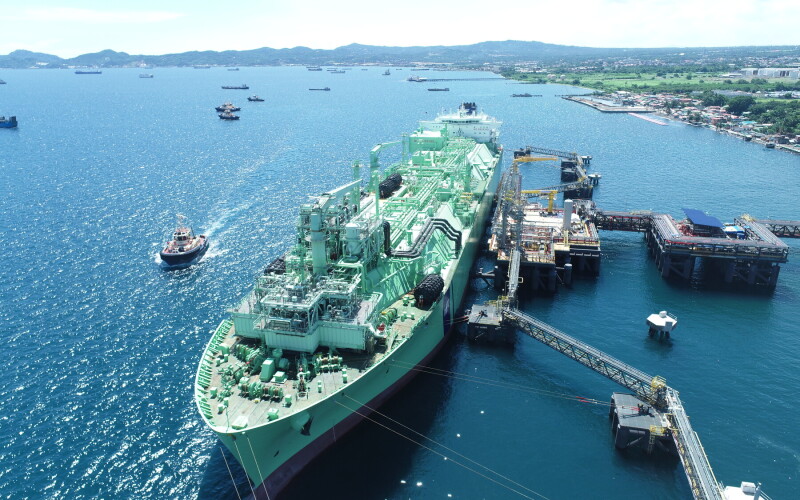Power producer First Gen is in talks with liquefied natural gas players to secure LNG supplies for delivery to its FSRU-based import terminal in Batangas, Philippines.
The firm controlled by the Lopez family has received four spot LNG shipments at the 162,000-cbm FSRU BW Batangas since August last year, and is currently seeking a new LNG cargo for delivery in July.
Shell suppled the first LNG cargo for commissioning purposes to First Gen’s FSRU-based LNG terminal in August last year, while Trafigura, TotalEnergies, and CNOOC supplied the second, the third cargo, and the fourth cargo respectively.
The company has a portfolio of four gas-fired power plants with a combined capacity of 2,017 MW at the Batangas complex that have been supplied for many years with gas from the Malampaya offshore gas field.
It is now buying LNG to replace declining volumes from the Malampaya gas field.
Medium to long-term
“First Gen has now established a proven track record of buying spot LNG cargo in the international market and is currently in discussions with key players for succeeding LNG cargoes to supplement Malampaya in the medium to long-term,” Francis Giles Puno, First Gen president and COO, said during the company’s annual general meeting on May 31.
Estimated to cost of about $370 million, this “strategically important” infrastructure, includes a totally reconfigured multipurpose offshore jetty and the FSRU which First Gen chartered from BW LNG.
Japan’s city gas supplier and LNG importer, Tokyo Gas, recently also entered into a deal to buy a 20 percent stake in First Gen LNG, a unit of First Gen and the operator of the FSRU-based terminal in Batangas.
The LNG terminal “assures the Philippines of its needed natural gas supply for First Gen’s existing plants and potentially additional gas-fired power facilities as needed in the future,” Puno said.
He said First Gen’s current gas-fired power plants comprising Santa Rita, San Lorenzo, San Gabriel, and Avion can now run simultaneously on Malampaya and regasified LNG with varying specifications to ensure continuity of energy production.
“It is worth noting that the Santa Rita and San Lorenzo plants comprising 6 250+ MW units have the added unique technical benefit of being triple-fuel capable (with Malampaya, LNG, or liquid fuel, if necessary),” Puno said.
“By addressing the fuel arrangements of our gas-fired plants through LNG, First Gen is now able to recontract its expiring power supply agreements,” he said.
He said San Gabriel’s contract has expired in February 2024 and is now running on a merchant basis, while Santa Rita’s and San Lorenzo’s contracts expire in 2025 and 2027, respectively.
“LNG will also pave the way for the potential expansion of the 2 by 600-MW Santa Maria
project to address the country’s future baseload power needs,” Puno said.

